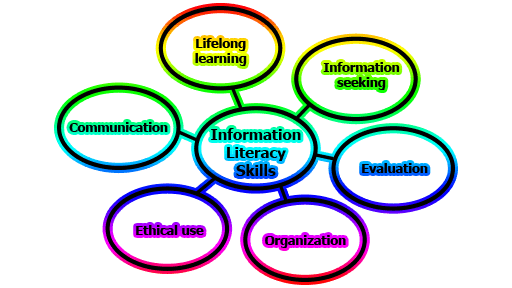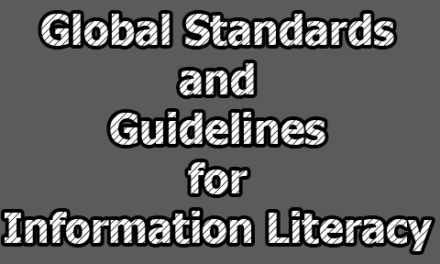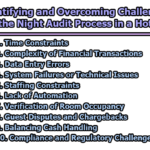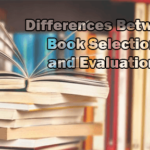Information Literacy Skills:
Information literacy skills (ILSs) are the ability to locate, evaluate, and use information effectively and efficiently. These skills are important for success in academic, professional, and personal contexts in today’s information-rich society. The following are some key ILSs:
- Information seeking: The ability to identify information needs, develop search strategies, and use appropriate search tools to locate relevant information.
- Evaluation: The ability to critically evaluate the credibility, reliability, and accuracy of information sources.
- Organization: The ability to organize, synthesize and integrate information from multiple sources.
- Ethical use: The ability to understand and apply ethical principles to the use of information, including copyright, plagiarism, and intellectual property rights.
- Communication: The ability to communicate information effectively and appropriately in a variety of formats and for different audiences.
- Lifelong learning: The ability to recognize the need for ongoing learning and to develop strategies for staying informed and up-to-date with new information and technologies.
In addition to the skills mentioned above, there are several other important aspects of information literacy:
a. Understanding different types of information sources: Information can be found in a variety of formats, including books, journals, websites, and social media. Understanding the strengths and weaknesses of each type of source can help individuals make informed decisions about which sources to use and how to use them.
b. Being aware of biases and perspectives: All sources of information have some degree of bias or perspective, and it’s important to be aware of these biases and how they may affect the information being presented.
c. Using technology effectively: Technology has dramatically changed the way we access and use information, and it’s important to have a good understanding of the tools and platforms available for finding and sharing information.
d. Collaborating with others: Many information problems require collaboration with others, and it’s important to have the skills to work effectively in teams and to share information in a collaborative manner.
e. Adapting to new situations: Information literacy skills are constantly evolving as new technologies and information sources emerge. It’s important to be adaptable and willing to learn new skills as needed.
Overall, information literacy is a critical set of skills for navigating the complex and ever-changing world of information. Developing these skills can help individuals make better decisions, solve problems more effectively, and achieve greater success in their personal and professional lives.
Need of Information Literacy Skills for Library:
ILSs are essential for libraries and librarians to fulfill their mission of facilitating access to information and supporting lifelong learning. Firstly, librarians need ILSs to help patrons locate and access information in the library’s collections and beyond. They must possess the skills to evaluate and select relevant resources to build and maintain the library’s collections. Secondly, ILSs are necessary for librarians to support students in developing their research skills and completing academic assignments. Librarians with strong ILSs can provide more effective reference services, assisting patrons in finding and evaluating the best information sources for their needs. Additionally, they often teach ILSs to students, faculty, and community members, and must possess these skills themselves to effectively teach others. Moreover, libraries are constantly adopting new technologies and information sources, and librarians with ILSs are better equipped to evaluate and incorporate these new tools into their work. Librarians with ILSs can also promote lifelong learning by assisting patrons in developing these skills. Lastly, libraries play a critical role in promoting lifelong learning, and librarians with ILSs are better able to support patrons in achieving their learning goals. In summary, ILSs are essential for librarians to effectively fulfill their roles in promoting access to information and supporting lifelong learning.

Former Student at Rajshahi University










